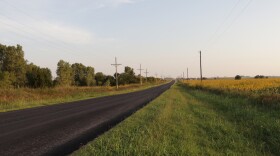In the wake of the election of Donald Trump, there’s been a focus in the U.S. on the rural-urban divide. There has been much talk of the Electoral College, a mechanism that gives rural voters an outsize voice in American elections—and you’d be forgiven for thinking that this rural-urban schism is a strictly American phenomenon, when it comes to politics.
But, as The Atlantic reports, a similar story exists in places around the world. From Argentina, to Malaysia, to Japan, the structure of the electoral systems gives rural voters disproportionate power, relative to their numbers. And this can mean that urban funding is cut in major cities worldwide.
For example, global warming is of less concern to rural voters than voters in cities, where the effects of smog and pollution are more evident.
Argentina presents the nightmare scenario for this rural-urban imbalance. In that country, a voter in the sparsely populated Tierra del Fuego province carries 180 times the political weight of a voter in the city of Buenos Aires.







